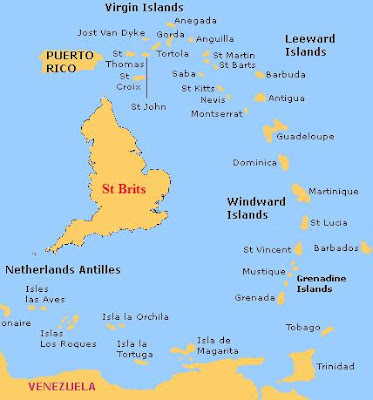Reportedly, young Greeks are suffering especially badly in the economic collapse: 51.1% of youth
were unemployed in December. (Spain is even worse than Greece, according to
Zero Hedge.) But how are these percentages calculated, and which young people are we looking at?
The first tweak is age brackets. Across Europe, the statistical comparison takes into account youngsters aged 15 - 24, but here in the UK, since
ROSLA (the Raising of the School Leaving Age) in 1972, our youth are only officially in the employment market from age 16 onwards.
Continuing with the UK, should we look at who is employed, or who is unemployed? As this
ONS video explains, only 50% of UK 16-24s are employed, which implies that the other 50% are unemployed. This is where sub-categories play a part: 36% of youth are "economically inactive" (not looking for work), leaving a mere 14% who are looking for a job but don't have one. However, the "unemployment rate" excludes the economically inactive and is expressed as the number of unemployed divided by (number unemployed plus employed), i.e.
about 14/(14+50) = 22.2% in the last quarter of 2011.
The "economically inactive" category includes students in further and higher education. So one factor
worsening the "unemployment rate" is the growing trend for youngsters to stay on in education and become economically inactive. One way to
improve the rate is through apprenticeship schemes. This has helped Austria's unemployment rate stay at only 7.3% and Germany's at 8.5%. Hence, I suppose, the recent British Government ad campaign for apprenticeships.
How much difference does education make? Let's look what proportion of all British 24-year-olds who left the education system at different stages, are unemployed: 13% of those with only GCSEs, 7% of those who only got A-levels, and 5% of those who obtained degrees. So A-levels seem to make a difference, but is it worth staying economically inactive for a further 3 years after that, taking on an
average £53,000 of student debt?
Now, back to Europe and especially Greece.
Comparing across Europe, the
Office of National Statistics says our youth unemployment RATE (
15 -24) is 21.8% as against an EU average of 21.5%; we're better off than Spain, Ireland, Italy or France, seen in this way. However, if we look at youth unemployment PROPORTION or RATIO (that is, number of young unemployed divided by total number of young people), the figures are lower but the ranking changes: the EU average is 9.1%, and the UK's figure is 12.7%. Spain's is far worse, at 19.5% but Ireland, France and Italy are better than the UK.
The difference in "rate" and "ratio" is stark in Greece, also: in 2010 the
rate was 32.9% but the
ratio was 10%. I decode that as meaning that out of every 100 young Greeks, 10 were unemployed, c. 20 employed and almost 70% economically inactive. The
rate in Q3 2011 rose to 45.8%, which if the numbers of economically inactive remained the same would mean an unemployment
ratio of some 14%, i.e. one in seven youngsters, not half of them. Maybe it's one in six, now.
We need the raw data, not just dodgy, headline-grabbing percentages.
For example, the
Hellenic Statistical Authority's latest release, covering the whole labour force as at December 2011, shows (a) 3,899,319 employed, (b) 1,033,507 unemployed and (c) 4,424,562 "inactive". That means an unemployment
rate - a/(a+b) - of 21%, but an unemployment
ratio of 11%.
Year on year - Dec 2010 to Dec 2011 - the numbers of unemployed increased by 40.9%, but the number of employed decreased by only 7.9%. Plenty of room for spin there, negative or positive as one pleases. ("Inactives" increased by only 1.6%.)
In the case of the young, one would expect there to be a significant element of "inactives" aged 15-24, simply because of the numbers staying on in further and higher education. So although "inactives" account for some 47% of the whole labour market, they constitute (as I estimated above) about 70% of the 15-24 age group.
According to the same release, the youth unemployment rate for December in the years 2006 - 2009 were as follows: 28.4%, 24.5%, 26.3%, 28.9%. In December 2010 it jumped to 39.0% and by December 2011 it was 51.1%; so most of the damage has been done in the last two years.
Let's assume, for the sake of argument, that the number of 15-24-year olds and the percentage of young "inactives" has remained constant since 2006. Using the assumptions derived from the 10% ratio / 32.9% rate figures above, we get the following breakdown of the Greek youth labour market
ratios:
Dec 2009: (a) employed 21.6%, (b) unemployed 8.8% and (c) inactive 69.6%
Dec 2011: (a) employed 14.9%, (b) unemployed 15.5% and (c) inactive 69.6%
... in other words, as I guessed earlier, one in six young people is unemployed.
Now if there is an increase in youngsters opting for further education to ride out the recession, the proportion of inactives increases and this worsens the unemployment
rate. Similarly, if young people who are employed leave the country for better-paid work abroad, the total actively wanting work within Greece decreases and this enhances the proportion of unemployed.
As a general point, perhaps looking at the wrong figures leads us to make the wrong policy decisions. Using education to skew employment statistics has a dynamic balance of contradictory effects, as we have seen; and education post 18 is both costly and questionable in terms of cost-effectiveness.
To what extent should education be seen as a gateway to employment, as opposed to a consumer luxury? Wouldn't
Shaw's Eliza Doolittle be better off setting up her flower shop, or teaching elocution, than getting an arts degree and a monster student loan?
Shouldn't we simply measure our success by how many young people are actually in work? I can see why policymakers don't, but shouldn't we?
INVESTMENT DISCLOSURE: None. Still in cash (and index-linked National Savings Certificates), and missing all those day-trading opportunities.
DISCLAIMER: Nothing here should be taken as personal advice, financial or otherwise. No liability is accepted for third-party content.
 A repeat of last year's opportunity, but even better: postage stamps without a stated face value represent a great buying opportunity.
A repeat of last year's opportunity, but even better: postage stamps without a stated face value represent a great buying opportunity.











